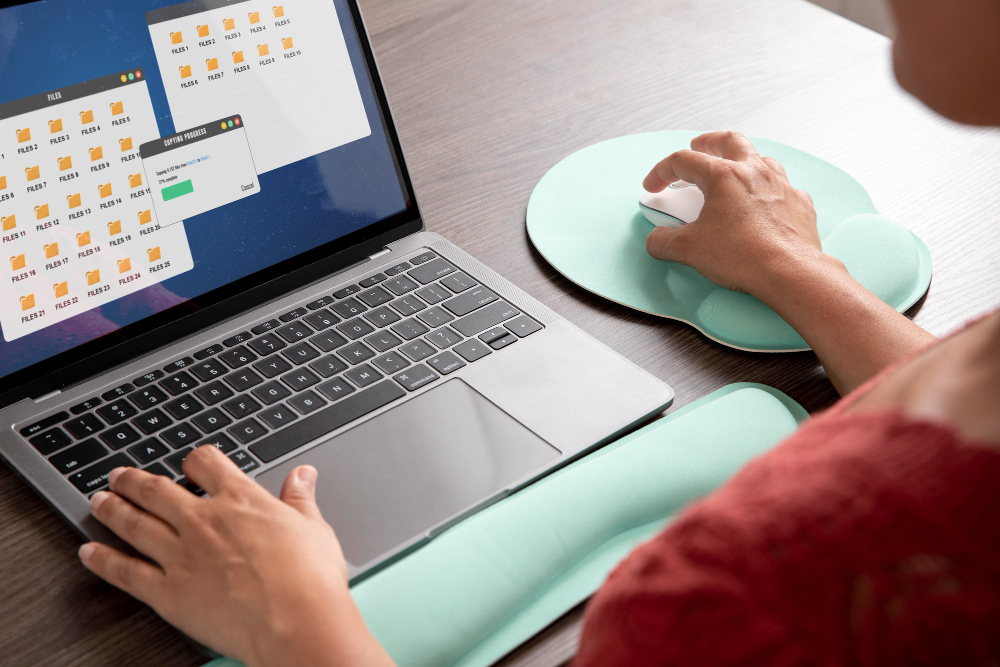In today’s digital-first world, Google Workspace tools have become essential for collaboration, productivity, and education. One of the most popular tools is Google Slides, accessible via docs.google.com/presentation/. However, users sometimes encounter the term “pii_deleted”, which can be confusing and concerning. In this article, we’ll explore what this means, why it occurs, and how to fix it efficiently.
What is docs.google.com/presentation/pii_deleted?
The URL docs.google.com/presentation/pii_deleted refers to a situation where a Google Slides file may have been removed, restricted, or flagged. The __pii_deleted__ term is similar to the __pii__ identifiers seen in other applications, commonly linked to Personally Identifiable Information (PII). While Google does not officially document this exact message, it typically points to:
- Deleted presentations – The file may no longer exist in Google Drive.
- Permission issues – Access might be restricted to specific users.
- Privacy or security concerns – Files containing sensitive data could trigger Google’s internal safeguards.
Understanding this message is crucial for individuals, educators, and businesses relying on Google Slides for presentations.
Common Causes of pii_deleted in Google Slides
1. Accidental Deletion
Many users inadvertently delete their Google Slides presentations. While Google Drive has a trash folder, files permanently deleted or removed after 30 days may result in the pii_deleted message.
2. Restricted Access or Permissions
Google Slides allows owners to control access via:
- View-only
- Comment-only
- Editor permissions
If your account does not have the required permissions, attempting to access the presentation may result in an error similar to pii_deleted.
3. Privacy and Security Filters
Files containing sensitive information or personally identifiable information may trigger internal flags. Google may temporarily restrict access until the owner verifies compliance with privacy policies.
4. Browser or Cache Issues
Sometimes, browser cache or cookies can create false access errors. Clearing cache and reloading the page can often resolve these minor issues.
5. Syncing or Sharing Errors
If the file was shared via a link and the owner revoked it or removed the file from their Drive, users may see the pii_deleted message.
How to Fix the docs.google.com/presentation/pii_deleted Error
1. Verify File Existence
Check your Google Drive to ensure the presentation still exists. If it’s missing, check the Trash folder and restore it if available.
2. Confirm Permissions
Ask the file owner to share the presentation with you explicitly. Ensure they grant the correct level of access (view, comment, or edit).
3. Clear Browser Cache
Old cached data can cause access errors. Steps:
- Open browser settings
- Navigate to Privacy & Security
- Clear cookies and cache
- Reopen Google Slides and try again
4. Use Incognito Mode
Opening the file in an incognito window prevents cached credentials from interfering. This is especially useful if you are logged into multiple Google accounts.
5. Check Link Accuracy
Sometimes, links copied from emails or shared documents contain extra characters. Ensure the URL matches the original Google Slides link.
6. Contact Google Support
If the file is critical and none of the above steps work, Google Workspace Support can help verify if the file has been permanently deleted or restricted.
Best Practices to Avoid pii_deleted Errors
1. Regular Backups
Use Google Drive’s Backup and Sync feature to keep copies of important presentations. Consider exporting them as .pptx or PDF files for offline access.
2. Manage Permissions Carefully
Avoid revoking access for users who might need it. Use shared drives for team projects to minimize accidental deletion.
3. Use Descriptive File Names
Files with unique names are easier to locate and restore if deleted.
4. Educate Team Members
Train employees or students on proper file management, sharing protocols, and privacy guidelines.
5. Monitor File Activity
Google Drive allows you to see recent activity on files. Regularly monitoring changes can prevent accidental deletions or unauthorized edits.
Understanding PII (Personally Identifiable Information) in Google Slides
The term pii_deleted hints at PII concerns. PII refers to any information that can identify an individual, including:
- Name
- Email address
- Phone number
- Identification numbers (like social security or employee IDs)
Google implements strict policies to protect PII. If a file contains sensitive information, it may trigger automated protection measures. Following these steps can prevent PII-related issues:
- Avoid storing sensitive personal data in presentations.
- Use anonymized data whenever possible.
- Limit sharing to trusted accounts.
- Enable two-factor authentication for Google accounts to enhance security.
Real-Life Scenarios of docs.google.com/presentation/pii_deleted
Scenario 1: Student Projects
A student shares a group project via Google Slides. After submission, the teacher accidentally deletes the original file. Team members trying to access the link will see pii_deleted.
Scenario 2: Corporate Presentations
A marketing team uploads a presentation with client data. The IT department notices sensitive data exposure and temporarily restricts the file. Employees accessing it during this time see the pii_deleted message.
Scenario 3: Online Collaboration
A nonprofit shares a report publicly. Due to incorrect sharing settings, external users receive the pii_deleted notice, highlighting the importance of proper link sharing.
Conclusion
Encountering docs.google.com/presentation/pii_deleted can be alarming, but understanding its causes and solutions makes it manageable. The error typically points to deleted files, permission restrictions, or privacy measures related to sensitive information. By implementing proper file management, permission control, and PII best practices, users can prevent these issues from recurring.
Google Slides remains a powerful collaboration tool, but awareness and proactive measures are key to uninterrupted access. Regular backups, proper sharing protocols, and secure handling of sensitive data ensure a smooth workflow without running into the dreaded pii_deleted message.
FAQs
Q1: Can I recover a presentation showing pii_deleted?
Yes, check your Google Drive trash or request the owner to restore it.
Q2: Is pii_deleted related to a virus?
No, it is a security and privacy-related Google safeguard, not malware.
Q3: Why do I see pii_deleted even with correct permissions?
It may be a browser cache issue, syncing error, or Google security restriction.
Q4: How can I prevent this in the future?
Regularly back up files, manage permissions carefully, and avoid storing sensitive PII in slides.








